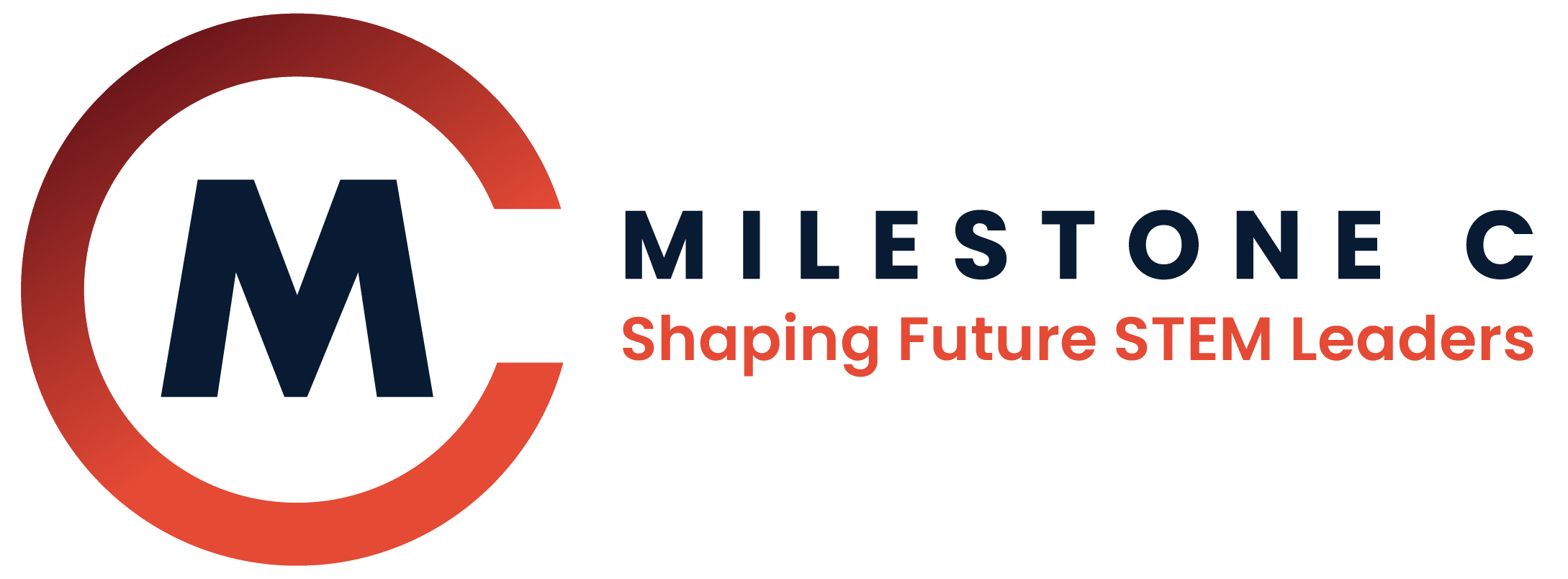All Milestone C curricula have been designed by management-level Fortune 500 engineers, scientists, software developers, and aviators working in close consultation with experienced educators.
Experiential Learning Laboratories
The Milestone C approach is to provide applied, hands-on context for the baseline STEM education all students receive in secondary schools. Our project-based curricula serve as learning laboratories where students’ interests are transformed, through hands-on experience, into substantiated confidence to make educated decisions about their futures, college and beyond.
Confidence & Motivation to Lead
Our courses equip students with not only knowledge and hands-on experience, but also the professional skills necessary to excel as leaders in 21st century technology industries. Chief among these skills are the following:
Critical Thinking & Problem Solving
Leadership & Teamwork
Professional Conduct & Confidence
Communication & Conflict Resolution
Public Speaking & Formal Presentation
Each course has been carefully crafted to create an internship-style experience in the classroom, packed with hands-on projects emulating real-world practices. Lectures are minimized and experiential activities are heavily employed.
Non-Linear Learning
The human mind retrieves information much more effectively in contexts that resemble the original learning environment. Therefore, we believe in teaching students in the context that they will apply the subject knowledge and skills in. All Milestone C programs are built upon activities and projects that emulate real-world experiences.
Professional organizations from all industries operate on context-based retrieval principles. Corporations employ internship programs that groom future employees by immersing interns into the real-world business environment. The U.S. Military adopts the “train like we fight” mentality, understanding the necessity of training environments that emulate real-world contingencies. At Milestone C, we developed a “Non-Linear Learning” technique based on the following philosophies: Controlled Chaos, Non-Intervention and Rewarded Failure.
Controlled Chaos:
Controlled chaos is a highly effective learning environment. 21st Century STEM professionals work in cross-functional teams and progress takes effort. Educational environments that eliminate the potential for miscommunication, competing objectives, confusion, and reasonable frustration also inadvertently eliminate the most valuable teamwork lessons.
Non-Intervention:
Hands-off teaching is the single best facilitator of hands-on learning. In the professional environment, it takes research and analysis to get information. Even then, data may be unclear, untimely, out of order, and conflicting. Allowing students to obtain and process information without frequent interjections is critical to broadening their horizons.
Rewarded Failure:
Encouraging innovative approaches without fear of failure will groom critical thinkers. Shaping future STEM professionals begins with enabling and empowering students to learn from their failures. The primary objective of any project-based program should be to get students comfortable with problem solving without a single “correct” answer.
Who develops the Milestone C programs?
Our curriculum authors, instructors, and staff have over 100 years of collective experience in professional STEM industries and education. We have participated in the development of presidential aircraft, served as lead engineers and program managers at Fortune 500 corporations, delivered leadership and team-building training to corporate giants, developed commercial aerospace test and overhaul equipment, led district-level STEM initiatives, and earned degrees from the world's leading educational institutes.
We are proud and eager to impart our experience to the next generation of STEM leaders through Milestone C’s nationwide curricula, local student programs, and professional learning opportunities for educators.





